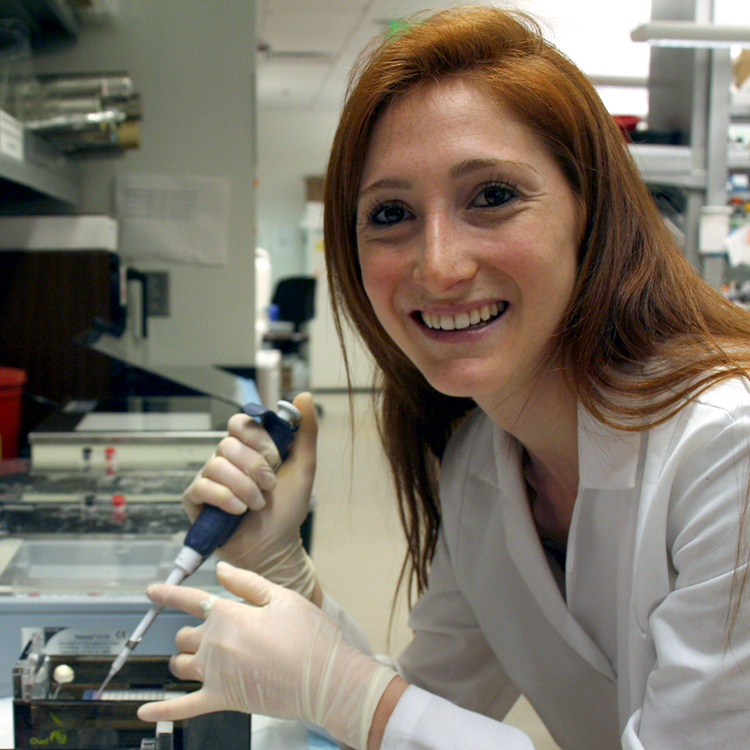
Home Department: Human Biology
Supported by: Bio-X
Mentor: Ron Kopito, Biology
 Nira is studying the molecular basis of Huntington’s Disease, a neurodegenerative disease strongly associated with the misfolding and subsequent aggregation of mutant huntingtin protein. Specifically, she is testing the hypothesis that mutant huntingtin aggregation causes the destabilization of diverse, unrelated proteins within the proteome which may have deleterious cellular effects associated with Huntington’s Disease pathogenesis. This work will enhance our understanding of the functional relationship between protein aggregation and neurodegenerative disease pathogenesis.
Nira is studying the molecular basis of Huntington’s Disease, a neurodegenerative disease strongly associated with the misfolding and subsequent aggregation of mutant huntingtin protein. Specifically, she is testing the hypothesis that mutant huntingtin aggregation causes the destabilization of diverse, unrelated proteins within the proteome which may have deleterious cellular effects associated with Huntington’s Disease pathogenesis. This work will enhance our understanding of the functional relationship between protein aggregation and neurodegenerative disease pathogenesis.
Poster presented at the Stanford Bio-X Interdisciplinary Initiatives Symposium on August 24, 2016:
Development of Cellular Models to Assess the Effects of Mutant Huntingtin Protein Aggregation on Global Proteome Stability
Nira Krasnow1, Airlia Thompson1, Ron Kopito1
[Department of Biology1, Stanford University]
Home Department: Human Biology
Supported by: Anonymous Donor
Mentor: Ron Kopito, Biology
Nira is studying the pathogenesis of Huntington's disease, a neurodegenerative disease caused by the misfolding and aggregation of the mutant protein huntingtin. She will test the hypothesis that mutant huntingtin misfolding and aggregation interferes with cellular protein homeostasis using a proteomics approach to measure the stability of "normal" (non-mutant) proteins in cells expressing mutant huntingtin. This work will provide insight into the connection between mutant huntingtin misfolding and aggregation and Huntington’s disease pathogenesis.
Poster presented at the Stanford Bio-X Interdisciplinary Initiatives Symposium on August 26, 2015:
Mapping Changes in Proteome Stability in Response to Acute Protein
Nira Krasnow1, Airlia Thompson1, Ron Kopito1
[Department of Biology1, Stanford University]

